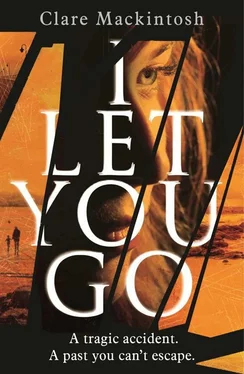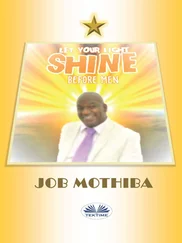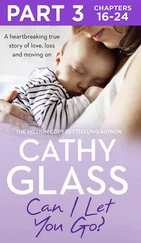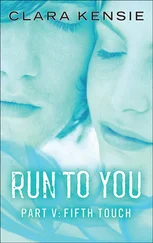An empty road.
Jacob running.
The squeal of wet brakes, the thud as he hits the car and the spin of his body before it slams on to the road. A blurred windscreen. Blood pooling beneath Jacob’s head. A single cloud of white breath.
The scream cuts through my sleep, jolting me awake. The sun isn’t up yet, but the light in the bedroom is on: I can’t bear to feel the darkness around me. Heart pounding, I concentrate on slowing my breathing.
In and out.
In and out.
The silence is oppressive rather than calming, and my fingernails carve crescents into my palms as I wait for the panic to subside. My dreams are becoming more intense, more vivid. I see him. I hear the sickening crack of his head on the tarmac …
The nightmares didn’t start straight away, but now they’re here, they won’t stop. I lie in bed each night, fighting sleep and playing out scenarios in my head like those children’s books where the reader chooses the ending. I squeeze my eyes tightly shut and walk through my alternative ending: the one where we set off five minutes earlier, or five minutes later. The one where Jacob lives, and is even now asleep in his bed, dark eyelashes resting upon rounded cheeks. But nothing changes. Each night I will myself to wake earlier, as though by disturbing the nightmare I can somehow reverse reality. But it seems a pattern has been set, and for weeks now I have woken several times a night to the thud of a small body on the bumper, and to my own fruitless scream as he rolls off and slams on to the wet road.
I have become a hermit, cloistered within the stone walls of this cottage, venturing no further than the village shop to buy milk, and living off little more than toast and coffee. Three times I’ve decided to visit Bethan at the caravan park; three times I’ve changed my mind. I wish I could make myself go. It’s been a very long time since I had a friend, and just as long since I have needed one.
I make a fist with my left hand, then unfurl my fingers, stiff from a night’s sleep. The pain rarely troubles me now, but I have no sensation in my palm, and two of my fingers have stayed numb. I squeeze my hand to chase away the pins and needles. I should have gone to the hospital, of course, but it seemed so insignificant in comparison to what had happened to Jacob; the pain so justly deserved. So instead I bandaged the injury as best I could, gritting my teeth as each day I pulled away the dressing from the damaged skin. Gradually it healed: the life line on my palm hidden forever beneath a layer of scars.
I swing my legs out from under the pile of blankets on my bed. There is no heating upstairs, and the walls glisten with condensation. I swiftly pull on tracksuit bottoms and a dark-green sweatshirt, leaving my hair tucked into the collar, and pad downstairs. The cold floor tiles make me gasp and I slide my feet into trainers, before pulling back the bolt to unlock the front door. I have always been an early riser; up with the sun to work in my studio. I feel lost without my work, as though I am flailing around looking for a new identity.
In the summer there will be tourists, I suppose. Not at this hour, and perhaps not as far inland as my cottage, but on the beach, certainly. But for now it is mine, and the solitude is comforting. A dull winter sun pushes its way over the clifftop, and there is an icy glint on the puddles punctuating the coastal path that runs around the bay. I begin to run, my breath leaving bursts of mist in my wake. I never jogged in Bristol, but here I make myself go on for miles.
I settle into a rhythm that echoes my heart, and run steadily towards the sea. My shoes make a noise as they hit the stony floor, but my daily runs have made me sure-footed. The path leading down on to the beach is so familiar now I could walk it blindfold, and I jump the last few feet on to the damp sand. Hugging the cliff, I jog slowly around the bay, until the line of rocks pushes me towards the sea.
The tide is as far out as it can go, a line of driftwood and tattered rubbish left on the sand like a dirty ring around a bathtub. Turning away from the cliff, I up my pace and sprint through the shallows, wet sand sucking at my feet. My head bent low against the biting wind, I fight the tide and run full-pelt along the shore until my lungs burn and I can hear the blood whistling in my ears. As I draw near to the end of the sands, the opposing cliff looms up above me, but instead of checking my pace, I speed up. The wind whips my hair across my face and I shake my head to clear it. I run faster, and the split-second before I smash into the waiting cliff, I stretch my arms in front of me and slam my hands against the cold rock. Alive. Awake. Safe from nightmares.
As the adrenalin leaves me I start to shake, and I walk back the way I came. The wet sand has swallowed my footprints, leaving no trace of my sprint between the cliffs. There is a piece of driftwood by my feet and I pick it up and idly drag a channel around me, but the beach closes around the wood before I have even lifted it from the ground. Frustrated, I walk a few paces inland, where the sand is drying, and trace another circle with the stick. It’s better. I have a sudden urge to write my name in the sand, like a toddler on holiday, and I smile at my childishness. The driftwood is unwieldy and slippery but I finish the letters and stand back to admire my handiwork. It seems strange to see my name so bold and unashamed. I’ve been invisible for so long, and what am I now? A sculptor who doesn’t sculpt. A mother without a child. The letters are not invisible. They are shouting: large enough to be seen from the clifftops. I feel a shiver of fear and excitement. I’m taking a risk, but it feels good.
At the top of the cliff an ineffective fence reminds walkers not to stray too close to the crumbling rock edge. I ignore the sign and step over the wire to stand inches away from the drop. The expanse of sand is slowly turning from grey to gold as the sun climbs higher, and my name dances across the middle of the beach, daring me to catch it before it disappears.
I’ll take a picture of it before the tide comes in and swallows it up, I decide, so I can capture the moment I felt brave. I run back to the cottage for my camera. My steps feel lighter now and I realise it’s because I’m running towards something, and not away from it.
That first photograph is nothing special. The framing is all wrong, the letters too far from the shore. I run back down to the beach, covering the smooth stretch of sand with names from my past, before letting them sink back into the wet sand. Others I write further up the beach; characters from books I read as a child, or names I love simply for the sweep of the letters they contain. Then I bring out my camera, crouching low to the sand as I play with the angles, layering my words first with the surf, then with rocks, then with a rich slash of blue sky. Finally, I climb the steep path to the top of the cliff to take my final shots, balancing precariously on the edge, turning my back on the clutch of fear it gives me. The beach is covered with writing of all sizes, like the scribbled ramblings of a madman, but I can already see the incoming tide licking at the letters, swirling the sand as it inches up the beach. By this evening, when the tide retreats once more, the beach will be clean, and I can start again.
I have no sense of what time it is now, but the sun is high, and I must have a hundred photos on my camera. Wet sand clings to my clothes and when I touch my hair it’s stiff with salt. I don’t have any gloves, and my fingers are painfully cold. I will go home and have a hot bath, then load the photos on to my laptop and see if I’ve taken anything passable. I feel a surge of energy; it’s the first time since the accident that my day has had purpose.
Читать дальше












